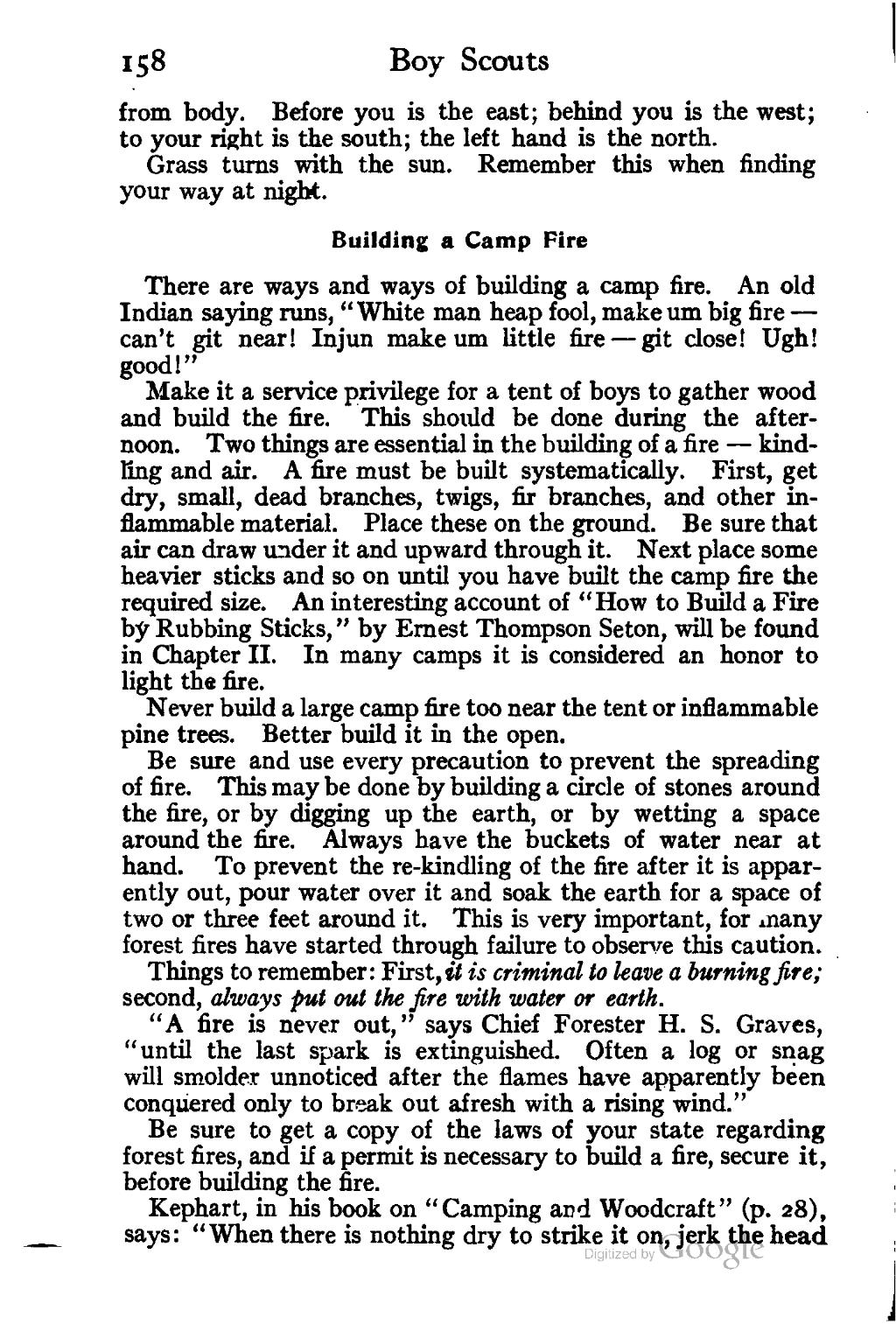from body. Before you is the east; behind you is the west; to your right is the south; the left hand is the north.
Grass turns with the sun. Remember this when finding your way at night.
Building a Camp Fire
There are ways and ways of building a camp fire. An old Indian saying runs, "White man heap feel, make um big fire—can't git near! Injun make um little fire—git dose! Ugh! good!"
Make it a service privilege for a tent of boys to gather wood and build the fire. This should be done during the afternoon. Two things are essential in the building of a fire—kindling and air. A fire must be built systematically. First, get dry, small, dead branches, twigs, fir branches, and other inflammable material. Place these on the ground. Be sure that air can draw u_uder it and upward through it. Next place some heavier sticks and so on until you have built the camp fire the required size. An interesting account of "How to Build a Fire by Rubbing Sticks," by Ernest Thompson Seton, will be found in Chapter II. In many camps it is considered an honor to light the fire.
Never build a large camp fire too near the tent or inflammable pine trees. Better build it in the open.
Be sure and use every precaution to prevent the spreading of fire. This may be done by building a circle of stones around the fire, or by digging up the earth, or by wetting a space around the fire. Always have the buckets of water near at hand. To prevent the re-kindling of the fire after it is apparently out, pour water over it and soak the earth for a space of two or three feet around it. This is very important, for many forest fires have started through fa/lure to observe this caution.
Things to remember: First, it is criminal to leave a burning fire; second, always put out the fire with water or earth.
"A fire is never out," says Chief Forester H. S. Graves, until the last spark is extinguished. Often a log or snag will smolder unnoticed after the flames have apparently been conquered only to brek out afresh with a rising wind."
Be sure to get a copy of the laws of your state regarding forest fires, and if a permit is necessary to build a fire, secure it, before building the fire.
Kephart, in his book on "Camping and Woodcraft" (p. 28), says: "When there is nothing dry to strike it on, jerk the head
